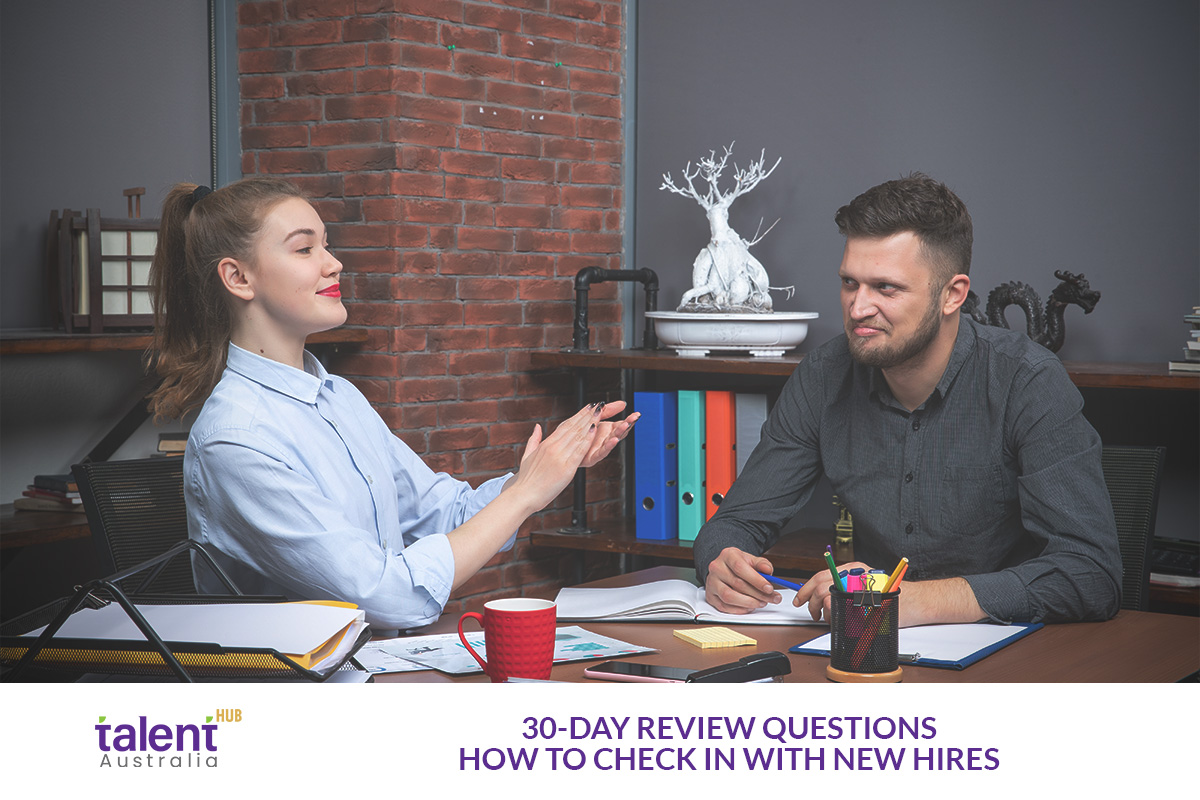
Recruitment and onboarding involve a significant investment of time, money and effort. From advertising job vacancies and interviewing candidates to training sessions and mentoring, every step carries a cost. To ensure this investment delivers long-term results, managers must check in with new employees early this is where 30-day review questions play a crucial role in strengthening onboarding success.
This is where 30-day review questions become invaluable. By asking the right questions, managers gain insight into how new hires are adapting, whether expectations are clear and what support they might need. At the same time, new employees feel heard and valued, which builds loyalty and engagement.
What Is a 30-Day Review?
A 30-day review is a structured conversation between a manager and a new employee during the first month of employment. It goes beyond checking performance it focuses on:
- How well the new hire is settling into the role
- Whether the on boarding process is meeting their needs
- Early signs of misalignment between expectations and reality
- Building trust and open communication from the start
Unlike annual or quarterly reviews, the 30-day check-in is not about metrics or results. Instead, it ensures the foundations are strong so the employee can succeed long-term.
Why the First 30 Days Are Critical
The first month of employment is often overwhelming. New hires are learning processes, adjusting to culture and building relationships with their team. If employers leave them unsupported, small frustrations may quickly snowball into disengagement or even early resignations.
By using thoughtful 30-day review questions, managers send a clear message: “Your feedback matters and we are here to support you.” This not only improves retention but also helps businesses adapt their on boarding approach in real time.
Essential 30-Day Review Questions for New Hires
Here are the most effective questions to ask during a new hire’s 30-day check-in, along with examples and follow-up prompts.
How are you? How has your week been?
Starting with a personal question breaks the ice and shows empathy. Employees are more open when they feel the conversation is about them as people, not just workers.
Example: Instead of jumping straight into performance metrics, ask: “How are you finding your workload this week?” This makes the meeting feel supportive rather than evaluative.
What’s going well so far?
This question highlights successes and boosts confidence. It also reveals which aspects of the job or workplace are most effective.
Follow-up questions:
- What do you enjoy most about your role?
- Which projects or tasks have been most rewarding?
How does the role compare to your expectations?
Employees often discover the role differs from what they imagined during recruitment. Addressing this early helps clear up confusion and manage expectations.
Follow-up questions:
- How is your role similar to what you expected?
- Have there been any surprises since starting?
What challenges are you facing?
Asking directly about challenges allows managers to identify barriers early. The goal is to provide support, not criticism.
Follow-up questions:
- Do you feel you have the right tools and training?
- Is your workload too heavy, too light or balanced?
- What can I do to help you?
How do you feel about the company so far?
This checks whether employees feel connected to the organisation’s mission and values. Alignment at this stage builds long-term engagement.
Follow-up questions:
- Do you see how your work contributes to company goals?
- How would you describe the company culture so far?
How do you feel about your team?
Strong team relationships are vital in the first month. Asking this question helps uncover how well the employee is integrating socially and professionally.
Follow-up questions:
- Do you feel welcomed and included by your team?
- Are you receiving the right level of support from colleagues?
Do you feel you have reached your 30-day goals?
This question compares your evaluation with the employee’s self-assessment. It also uncovers whether goals were realistic and clearly communicated.
Follow-up questions:
- Which achievements are you most proud of?
- What would you like to improve moving forward?
What goals would you like to set for the next 30 days?
Looking forward keeps momentum strong. Setting goals collaboratively ensures employees stay motivated and aligned with business needs.
Follow-up questions:
- What skills do you want to focus on developing?
- What support would help you achieve these goals?
Do you feel you have a healthy work-life balance?
Employee wellbeing directly affects productivity. Asking about balance shows you value their health and not just their output.
Follow-up questions:
- Are you able to switch off after work?
- Do you feel you have time for family and personal commitments?
Do you have anything else you would like to share?
Always leave space for employees to raise their own points. Sometimes the most valuable insights come from what managers do not ask.
The Benefits of Asking the Right 30-Day Review Questions
When managers use structured 30-day review questions, they do more than gather feedback. They:
- Build trust through open and empathetic communication
- Address small issues before they become big problems
- Learn whether on boarding processes are effective
- Improve employee engagement and retention rates
In short, the 30-day review helps employers protect their investment while giving employees the confidence and support they need to thrive.
Also Read:
